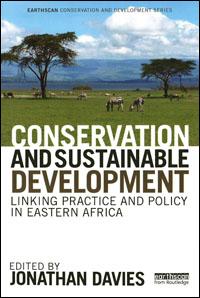Conservation and sustainable development : linking practice and policy in Eastern Africa

Organization(s):
This publication presents innovative ways that have been used to influence policy processes, from community pressure groups through elected and unelected leaders, to scientific discourse at the levels of directors of economic planning and conservation. The book analyzes experiences from a variety of conservation interventions by IUCN and other agencies, primarily in Eastern Africa, and challenges the notion of policymaking as a cyclical process. It elaborates on this theme and presents an array of examples of how communities have influenced government, through direct lobbying, influence of parliamentarians, wielding of science and research, and inter-community dialogue, networking and solidarity. The contributors present a framework for understanding and strategizing such work so that other institutions can identify where they can best add value.
Monographic Series:
Includes bibliographical references.
Keywords:
Geographic keywords:
Broad subject:
Call number:
Record updated: 2024/09/25
